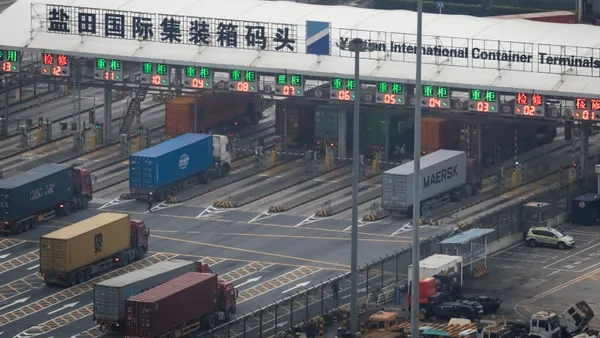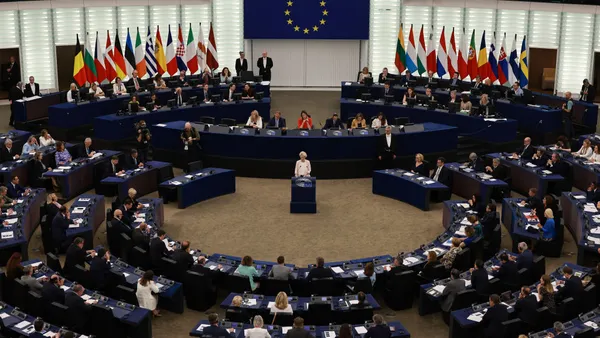Dive Brief:
- California-based apparel maker Next Level Apparel announced Tuesday it is partnering with a textile manufacturer in the Dominican Republic to provide nearshore production.
- The partnership follows NLA’s recent move to require all of its fabric suppliers to use only cotton grown in the U.S. for the company’s entire apparel line. NLA also announced this month that it contracted with Oritain, a forensic science company, to verify the origin of the raw materials in its products.
- NLA says the partnership with the textile manufacturer, Grupo M, will bring its production closer to home, improve its speed to market and increase transparency into its supply chain.
Dive Insight:
NLA isn’t the only company that’s showing more interest in nearshoring. In a 2021 survey from McKinsey & Co. of 38 chief procurement officers at international brands and retailers, more than 7 in 10 said they have plans to increase their share of nearshoring, which describes the practice of moving operations to a nearby country, particularly over a faraway one.
The company announced a similar partnership with GK Global, a textiles company located in Central America, last month to bring its fabric production closer to its headquarters.
Like NLA, U.S. companies have been looking to Central America for future nearshoring activities. In the 2021 survey, 8 in 10 of the North American apparel companies said they plan on increasing the share of their sourcing from this region.
Interest in nearshoring is growing in part because it promises to reduce speed to market and lower transport costs. For a U.S.-based company, moving production from either Bangladesh or China to Mexico would result in shipping times dropping from 30 days to only two days, according to a separate 2018 report from McKinsey.
Changes to import laws over the past couple of years may also be a factor. In late 2021, President Joe Biden signed the Uyghur Forced Labor Prevention Act, which bans products from China’s Xinjiang region from entering the U.S over concerns about forced labor.
Although brands have wanted to avoid cotton from the Xinjiang region due to potential human rights violations, China benefits from an “export strategy that obscures cotton’s origin,” according to 2021 research from Sheffield Hallam University. That may have put popular brands at risk of contracting with manufacturers that use cotton from the Xinjiang region, including Banana Republic, Madewell and Ralph Lauren, the research found.
In its announcement about working with Grupo M, NLA cited a desire to reduce geopolitical risk. “The partnership decreases risk associated with the rising tensions between the U.S. and China,” Kendall Tenney, a spokesperson for the company, said in an email.
Sustainability is also a major driver for nearshoring. Corporate consultants have suggested that fashion companies and other organizations could reduce their climate footprint if they reduced their distances from their manufacturers through nearshoring.
NLA echoes some of those calls in its announcement.
“With our premium products, our customers not only look good, but they also can feel good about how those products are sourced,” NLA CEO Randy Hales said in a statement. “As part of our ethos, we seek like-minded suppliers who prioritize sustainability and uphold equally high standards.”











